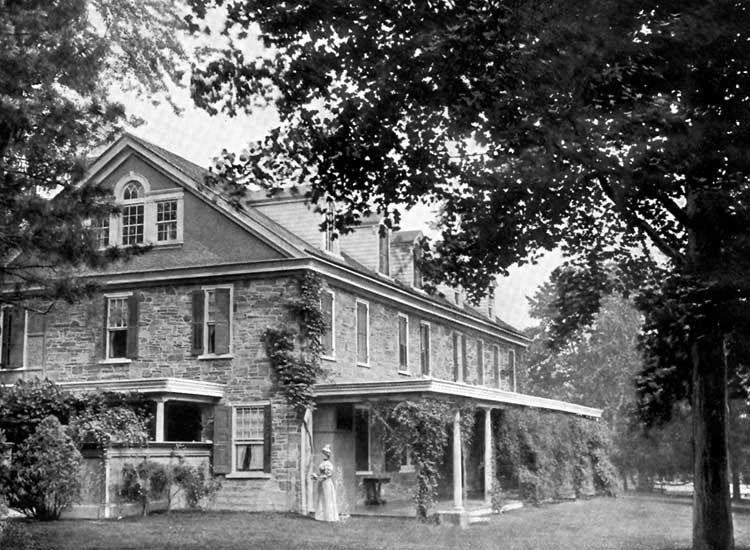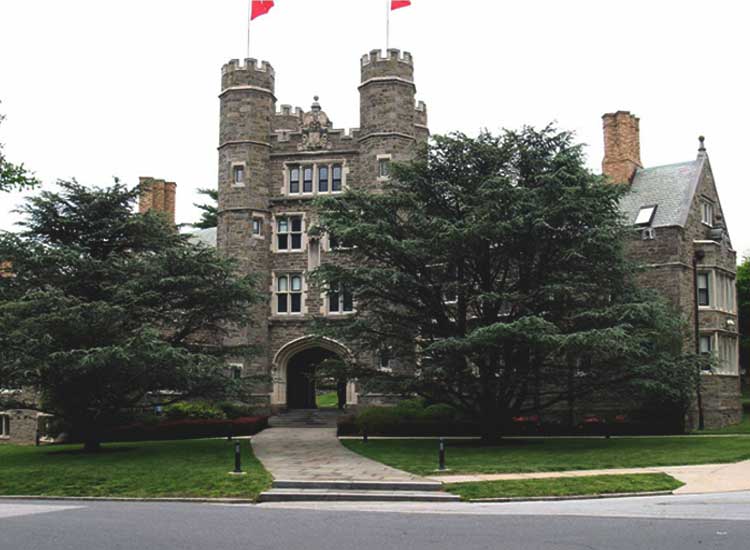|
Bryn Mawr is known for its elite educational institutions, many of
which got their start in the last quarter of the 19th century. Bryn
Mawr College was founded in 1880 with an endowment from a Quaker
businessman and physician, Dr. Joseph Wright Taylor. Taylor had seen
the frustrations of a friend's daughter who was unable to pursue
graduate study. That woman was M. Carey Thomas, who became Dean and
later President of the college.
Taylor died in 1880 and bequeathed much of his estate to fund an
institution "for the advanced education of females" providing "all the
advantages of a College education which are so freely offered to young
men" – a reference to Haverford College. Taylor wished to establish a
college to advance education for females and would encourage students
in the beliefs of the Society of Friends. The College formally opened
in 1885 upon the completion of Taylor Hall. It was originally under the
management of the Society of Friends.

By 1893 the Trustees broadened the college's mission by deciding that
Bryn Mawr would be non-denominational. They determined that excellence
in scholarship was more important than religious faith, although the
college remained committed to Quaker values such as freedom of
conscience. The College established undergraduate and graduate programs
that were widely viewed as models of academic excellence in both the
humanities and the sciences. It was also the first institution in the
United States to offer fellowships for graduate study to women. In 1892
Bryn Mawr College established a self-government association, the first
in the country, that granted students the right not only to enforce,
but to make all of the rules governing their conduct.

Bryn Mawr College – Rockefeller Hall
In 1912, at the bequest of an Alumna, the Graduate Department of Social
Economy and Social Research made Bryn Mawr the first institution in the
country to offer a Ph.D. in social work. During the 1960's Bryn Mawr
strengthened its ties to Haverford College, Swarthmore and the
University of Pennsylvania when it instituted mutual crossregistration
for all undergraduate courses. In 1969 they augmented their special
relationship with Haverford College by establishing a residential
exchange program that opened certain dormitories, at each college, to
students of the other college. During the 1990s Bryn Mawr undertook a
thorough re-examination of the women only status of its undergraduate
college and concluded that providing the benefits of single-sex
education for women, in cultivating leadership, self-confidence and
academic excellence, remained essential to the College's mission.
|